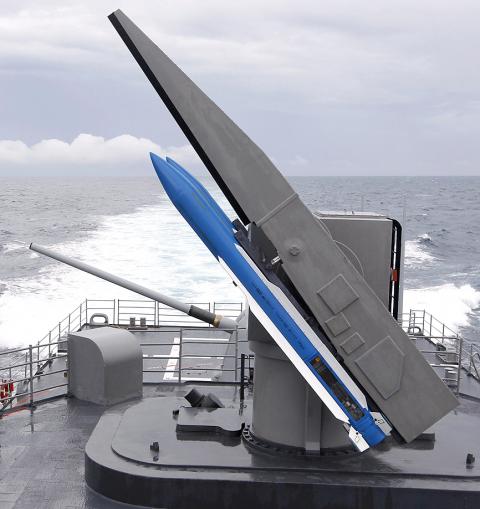The dispute between Taiwan and the Philippines is unrelated to the “one China” principle and Taipei will lodge a protest if Manila cites it as the basis for its handling of the matter, Mainland Affairs Council (MAC) Minister Wang Yu-chi (王郁琦) told lawmakers yesterday.
“What happened between Taiwan and the Philippines is the business of the two countries, it has nothing to do with the ‘one China’ principle,” Wang said in response to lawmakers’ questions about Philippine President Benigno Aquino III’s recent remark that the dispute would be handled in accordance with Manila’s “one China” policy.
“The government of the Philippines should positively respond to the calls made by the Republic of China government as soon as possible,” Wang said at a meeting of the Internal Administration Committee at the legislature in Taipei.

Photo: Pichi Chuang, Reuters
Asked to comment on China’s expression of support for Taiwan because “Taiwan is part of China,” Wang thanked Beijing for its support, but said it should stay out of the dispute.
“We appreciate China’s concern over the killing of a Taiwanese fisherman. However, the council has contacted China’s Taiwan Affairs Office, urging China to stay out of the dispute,” Wang said. “We have informed them that their expression of concern over the issue would only make things more complicated at this time and we hope they understand this.”
Since the death of fisherman Hung Shih-cheng (洪石成) last week, China has voiced its concern several times and it reportedly sent a naval fleet through the disputed waters in the Bashi Channel on Wednesday.
The committee adopted a resolution urging the council to deliver an official notice to China, asking it to refrain from getting involved in the dispute.
Additional reporting by staff writer

CHAOS: Iranians took to the streets playing celebratory music after reports of Khamenei’s death on Saturday, while mourners also gathered in Tehran yesterday Iranian Supreme Leader Ayatollah Ali Khamenei was killed in a major attack on Iran launched by Israel and the US, throwing the future of the Islamic republic into doubt and raising the risk of regional instability. Iranian state television and the state-run IRNA news agency announced the 86-year-old’s death early yesterday. US President Donald Trump said it gave Iranians their “greatest chance” to “take back” their country. The announcements came after a joint US and Israeli aerial bombardment that targeted Iranian military and governmental sites. Trump said the “heavy and pinpoint bombing” would continue through the week or as long

TRUST: The KMT said it respected the US’ timing and considerations, and hoped it would continue to honor its commitments to helping Taiwan bolster its defenses and deterrence US President Donald Trump is delaying a multibillion-dollar arms sale to Taiwan to ensure his visit to Beijing is successful, a New York Times report said. The weapons sales package has stalled in the US Department of State, the report said, citing US officials it did not identify. The White House has told agencies not to push forward ahead of Trump’s meeting with Chinese President Xi Jinping (習近平), it said. The two last month held a phone call to discuss trade and geopolitical flashpoints ahead of the summit. Xi raised the Taiwan issue and urged the US to handle arms sales to

State-run CPC Corp, Taiwan (CPC, 台灣中油) yesterday said that it had confirmed on Saturday night with its liquefied natural gas (LNG) and crude oil suppliers that shipments are proceeding as scheduled and that domestic supplies remain unaffected. The CPC yesterday announced the gasoline and diesel prices will rise by NT$0.2 and NT$0.4 per liter, respectively, starting Monday, citing Middle East tensions and blizzards in the eastern United States. CPC also iterated it has been reducing the proportion of crude oil imports from the Middle East and diversifying its supply sources in the past few years in response to geopolitical risks, expanding

Pro-democracy media tycoon Jimmy Lai’s (黎智英) fraud conviction and prison sentence were yesterday overturned by a Hong Kong court, in a surprise legal decision that comes soon after Lai was jailed for 20 years on a separate national security charge. Judges Jeremy Poon (潘兆初), Anthea Pang (彭寶琴) and Derek Pang (彭偉昌) said in the judgement that they allowed the appeal from Lai, and another defendant in the case, to proceed, as a lower court judge had “erred.” “The Court of Appeal gave them leave to appeal against their conviction, allowed their appeals, quashed the convictions and set aside the sentences,” the judges